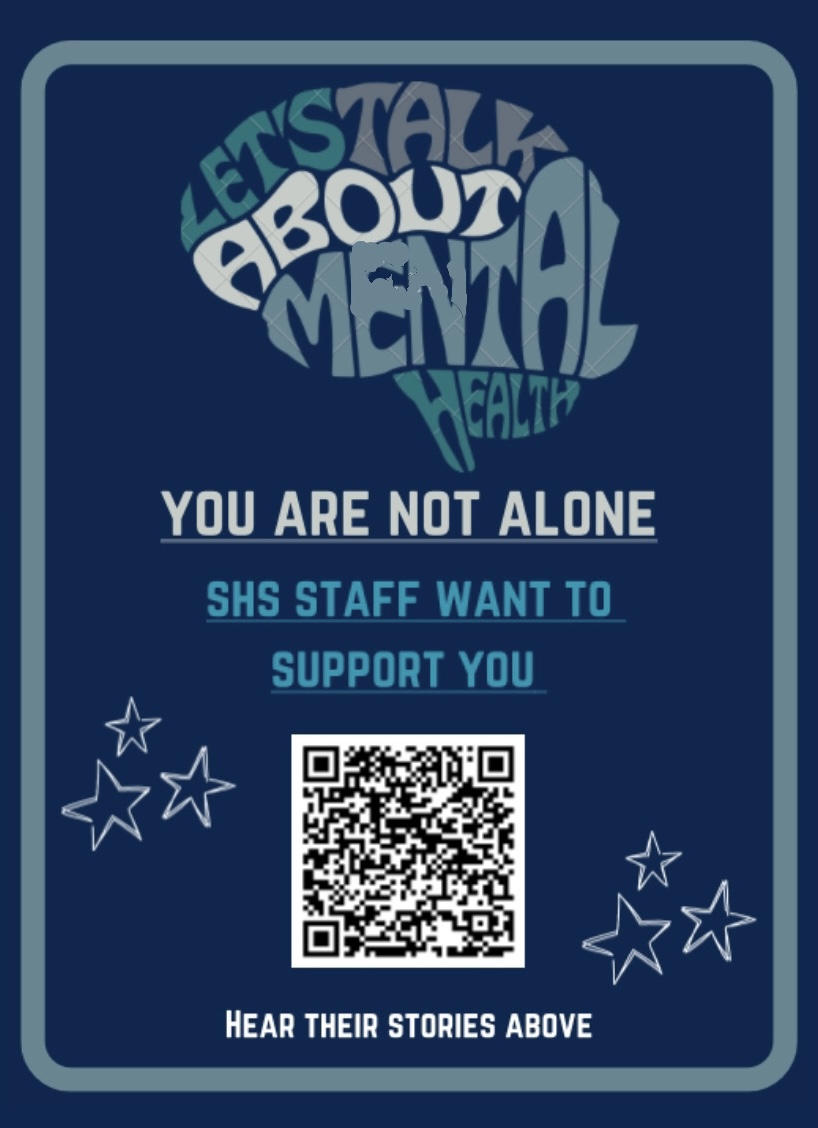My state-qualifying DECA project is a podcast titled “Let’s Talk About Mental Health.” I worked on this idea in partnership with SPS Director of Health & Wellness, Greg Ranieri, hoping to spread awareness among SPS guidance counselors, psychologists, and advisors.
I decided to start with my experience at Scituate High School. Going into my senior year, I was surprised to hear that many students were unaware of the many resources available around the school. There are several adults in the building whose job entails supporting students; however, some students don’t know who those adults are.
During my freshman year, I found myself in a similar position. In 2020, the pandemic divided students by cohorts. Cohorts A and B attended school in person every other day. (Most of my friends were in these cohorts.) Meanwhile, I was in Cohort C, learning online and attending school full-time as a fully remote student.
In April of 2021, when all students could attend school in person full-time, I was lost: I had no knowledge of the building because I was a freshman, and I never participated in a freshman orientation. But I was also lost as an individual–I felt as though I was alone–but I wasn’t the only student feeling that way. Fortunately, my guidance counselor at the time, Ms. Kimani, kept in touch with me via Zoom and Remind, but I didn’t really know her, so it was still a lonely experience.
During my junior year, I discovered that I could have received even more support from mental health professionals in the building. With the immense challenges high school already presents, alongside personal struggles, it is no surprise that students like me can feel drained.
A few weeks ago, I met with the Assistant Superintendent of Schools, Heidi Driscoll, to discuss this issue. When asked if COVID-19 still impacts students today, Driscoll replied, “Absolutely.” She mentioned that isolation was scary to many of us, and it lingers within each school.
When Driscoll came to Scituate three years ago, she was pleased to learn that each school had its own set of counselors and psychologists. She commented, “We are very lucky that we have the staff to support our students. Not all communities have that structure.”
In fact, in April 2022, an article in The Boston Globe reported, “One district that does have a particularly strong complement of counselors is Scituate, with roughly 200 students per counselor — well below the American School Counselor Association’s recommendation of 250 students to 1 or the Massachusetts average last year of 364 to 1.”
Driscoll explained that between the health and guidance staff, there is something called the District Social Emotional Development Team. They work together to study what each school needs–the big picture and the student level. The PEAR (Partnerships in Education and Resilience) Holistic Student Assessment, for example, has been expanded since 2021. Third graders through tenth graders take this assessment, and their responses are evaluated.
In 2023, administrators piloted a beginning and end-of-the-year screener for sixth graders to check if their support was working. This year, 2024, all grades will take this assessment. Driscoll said, “Greg Ranieri and Tammy Rundle are really spearheading that. I don’t know of another district that is so invested.”
CharacterStrong, a social-emotional development curriculum that includes words and strategies for grades K-12, was also introduced last year.
When asked if there is a stigma surrounding students asking for help, Driscoll said “teen angst” can hold some students back, which is not new after COVID-19. However, she feels the stigma has decreased since the pandemic, which is a benefit. Driscoll commented, “I think it’s important that we do use things like the PEAR screenings so that counselors reach out to kids. Once you have that connection, I feel like it’s much easier to talk with your counselor.”
Driscoll hopes SPS students continue to be supported by PEAR screenings and the CharacterStrong curriculum. “If a system is implemented and is sustained from year to year, it will be better for our teachers and students,” she said.
In Scituate, many support systems are in place for individuals to access through their school, and in our “home away from home,” the bond with counselors, teachers, support staff, and administrators can help students be their best selves.
If you are a student who wants to learn more about mental health issues, please listen to my podcast and visit the following link: https://sites.google.com/student.scit.org/letstalkaboutmentalhealth/home
